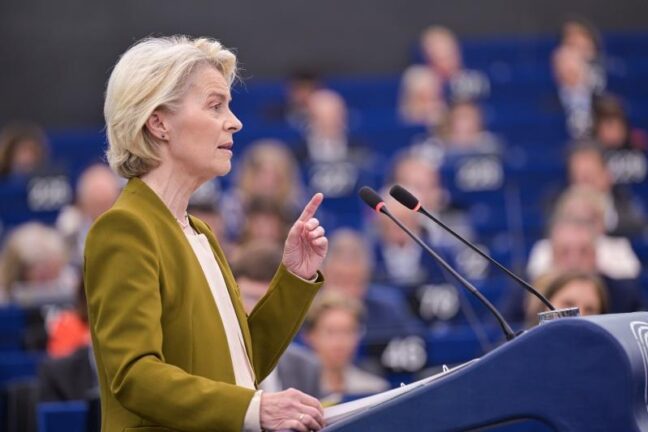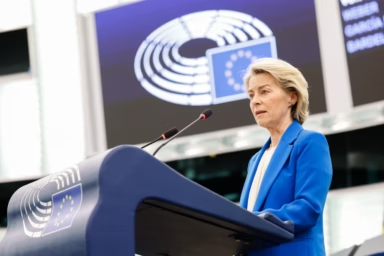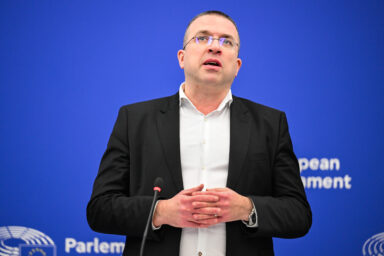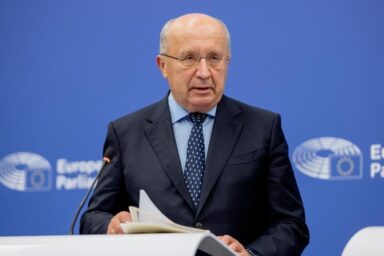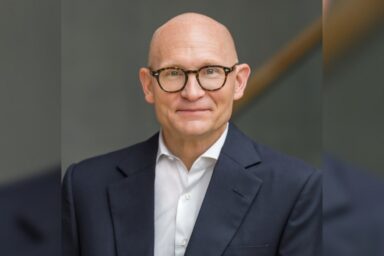Commission President Ursula von der Leyen delivered a State of the European Union address shaped by mounting crises and political pressure. She found some support in the chamber—but also sharp criticism. MEPs from her own political group and pro-democracy factions applauded parts of her speech and the unifying vision she laid out. Others attacked the Commission for acting too slowly or selectively, including on the humanitarian situation in Gaza. The EU–US deal also drew fire.
Reaction to the speech itself was telling, with MEPs at turns supportive, at other moments boisterous and critical. This State of the Union was never going to be easy, but Ms von der Leyen handled it with the necessary seriousness, commitment, and even aplomb. She made clear that the future of Europe—one dedicated to democracy and plurality—was at stake. Her address acknowledged the scale of the challenges ahead, from war in Ukraine to accelerating climate impacts. All were mentioned. All must be faced, the Commission president made clear.
Tensions on the floor
But it was hardly smooth sailing. Parts of the speech—especially on disinformation, research and health, and the rule of law—were met with boos and shouting in the chamber. This led European Parliament President Roberta Metsola to threaten one MEP with removal (she mistakenly named Christine Schneider, German MEP for the centre-right EPP, rather than the actual shouter, Christine Anderson of the German far-right AfD and ESN faction). Ms von der Leyen responded directly, saying that if MEPs wanted to shout, they would first have to listen.
Battle lines for a new order based on power are being drawn right now. – Ursula von der Leyen
Her speech touched on Ukraine, security, the US trade deal, green industry and the Green Deal, a ceasefire in Gaza, competitiveness, enlargement, support and safeguards for European farming, and more. But the anchor was unity — especially among all pro-democracy forces in Parliament, the Council, and the Commission — working together to face difficult decisions and shape Europe’s future. “Battle lines for a new order based on power are being drawn right now,” President von der Leyen said. Unity, presumably, would be the difference, between failure and success.
Some bought in or actively supported her vision; but others savaged the President’s words, suggesting she had spoken far too late on some issues, gotten a bad deal with the US, and more.
Weber holds the line
Manfred Weber, a key von der Leyen ally and head of the EPP, her own political family, was the first to respond in the session. He acknowledged just how difficult a summer it had been, but largely backed the EC President and said the EPP would remain solidly behind the Commission and its plans.
“This summer was not an easy one for Europe, it was Alaska… Gaza… the US trade deal… forest fires… Draghi criticising economic policy. It was really not easy. And it’s now easy to stand here in this plenary and criticise. I think a lot of people afterwards will do so, will criticise the Commission president, the Council, I will not be like this. I believe we can only win trust if we trust in us. And that’s why my first message is, that you can count on what the EPP (European People’s Party) promised in the election campaign (…) we won the elections and the Commission is now delivering.”
You might be interested
The guiding principle for us is responsibility. – Manfred Weber, head of the EPP
Things the Commission is getting right
He named multiple items to show the Commission was doing its job successfully including the migrant return programme, the SAFE defence loan programme, 18 (soon 19) sanctions packages against Russia, and defence with Greece and Poland, with “illegal migration numbers,” he said, “falling by 80 percent.” In other words, though times were difficult, the Commission was not shying away from its work and Mr Weber stressed his party would continue to help in challenges ahead.
“The guiding principle for us is responsibility,” he said.
He admitted things were far from rosy, but said the moment of truth would be this autumn, when new legislation or proposed changes landed on MEPs’ desks. He said the EPP, for example, would support the US trade agreement even if he personally didn’t like 15 percent tariffs. Rhetorically, he asked “What is the alternative? A trade war with the US?” The same reasoning applied to deals—with safeguards—such as Mercosur. An understanding that the EU must find consensus and move forward.
‘Stop the genocide!’ S&D head demands
The S&D group leader Iratxe García Pérez followed and her words were impassioned and fiery, expressing moral outrage.
She slammed the Commission and its president for a lack of action on Gaza, describing schools “razed to the ground, famine used as a weapon of war, and children being machine-gunned” as they searched for food. She said she would have invited relatives of journalists or children who had died to the Parliament.
If Gaza dies, the soul of Europe dies with Gaza. Stop the genocide! – Iratxe García Pérez, head of S&D Group
“There are thousands and thousands of voices of children we will never hear again. They died in a massacre orchestrated by the Israeli government. We have waited too long (…) we heard your presentation that we should withdraw [partially from the trade elements of the EU–Israel Association Agreement], we call for a complete break with the agreement, we welcome those steps, but they come too late (…) Trump and Netanyahu were talking about building a tourist resort! We need our own alternative (…) because if Gaza dies, the soul of Europe dies with Gaza. Stop the genocide!”
Staunch opponents slam EC president
Jordan Bardella (PfE/FRA), an ally of Marine Le Pen and potential candidate in the next French presidential election, came out harshly against von der Leyen—not surprising and emblematic of the gulf between parties that want to move forward and those willing to throw a wrench in the works (based on actions and statements for example by their own rapporteur on the 2040 climate target Ondřej Knotek).
Mr Bardella challenged the EC President to answer “whose interests she was actually defending.” He suggested he was speaking for millions of French citizens in criticising the Mercosur agreement, which he said would increase unfair competition for French farmers. And he charged that products on European plates would not meet the same standards. He criticised her stance on Chinese EV vehicles and energy, and for signing, in citizens’ names, a trade deal with the US.
“France has a high-class military industry, you are favouring the United States; wine, cosmetics are sacrificed.”
Canada, the UK, Australia, South Korea all secured “better agreements” he claimed, adding that even smaller countries had done a better job and he charged that Ms von der Leyen had “caved on almost everything.”
Mr Bardella warned she would be “charged harshly” by history while another MEP brought up a recent poll suggesting that six in ten Europeans felt Ms von der Leyen should step down over the US deal.
Denmark’s Bjerre applauds von der Leyen’s leadership
As scathing as some of the responses were—and sticking points were many, with some accusing the EC President of using “marketing phrases”—Denmark’s Minister for European Affairs, Marie Bjerre, expressed the opposite. Unlike some who criticised the Commission, she stated how close Ms von der Leyen’s vision was to the Danish EU Council presidency.
“Europe needs strong leadership in challenging times,” she said. “Madame President, you provide such strong leadership.” Her approval received only a smattering of claps, but her description of von der Leyen’s vision received a stronger response.
“You said it very clearly: a new Europe must emerge. This is Europe’s independence moment. Europe should take control over its own security, technology and energy, and stand up for its values,” Ms Bjerre said.
She also outlined how aligned the Commission and the Danish presidency (which lasts until the end of December 2025) were on issues including support for Ukraine, support for ReArm Europe to prepare Europe by 2030, and for upholding the rules-based order—under pressure both from the east and west, from US President Donald Trump.
You said it very clearly: a new Europe must emerge. This is Europe’s independence moment. – Marie Bjerre, Denmark’s Minister for European Affairs, to President von der Leyen
A big speech, many commitments
The President of the European Commission faced a fraught political moment after a difficult summer and this speech will be analysed for some time to come on what it got right and judged based on which proposals are followed up and become reality. Many responded by focusing on select sections rather than the broader vision—bringing to mind the famous Indian fable of the blind men describing an elephant. Supporters will argue that Ms von der Leyen didn’t shy away from any major issue, proposing clear areas where the EU needs to invest or double down.
Some political groups are already expected to push back on the Commission’s leadership in the coming months—perhaps to again try and censure the president for the second time in her second term. Divisions that a single address was never going to resolve, even after what many have described as a historic moment rather than business as usual.
